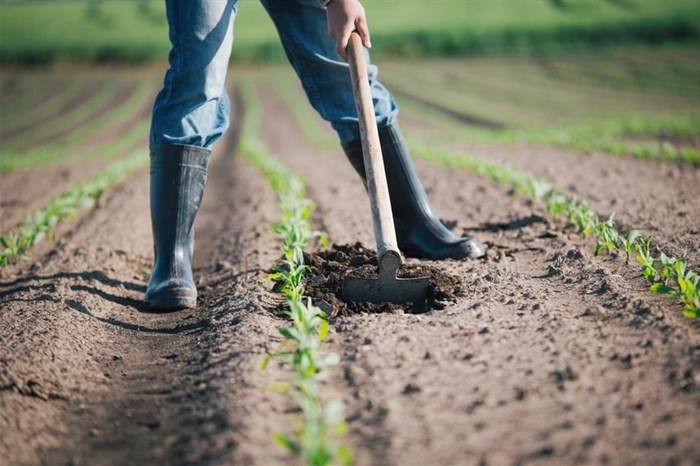Project Change, a transformative and replicable broad-based initiative within the agricultural sector has recently come on-stream via the conclusion of a transaction between citrus and grape farmer, Schoonbee Landgoed, and pioneering black-owned company, Thebe Investment Corporation. The initiative. with a focus on commercial production, packaging, marketing and sales of table grapes and citrus is set to provide an innovative, long-term model for partnering between established white commercial farmers and black institutional investors, while empowering local communities and supporting new entrant (including smallholder) farmers in achieving financial viability.
Project Change is the brainchild of Schoonbee Landgoed, an established citrus and grape farmer and exporter situated in the Loskop Valley of Groblersdal in the Limpopo Province.
A profit-for-purpose agricultural model
Grounded in the spirit and principles of the National Development Plan, the goal is to become a market-leading, black-owned "profit-for-purpose" farming initiative that is able to service local and international markets with premium products, while at the same time empowering the communities involved in the project through job creation and the provision of education, training, and healthcare services.
The project consists of two recently developed farms with existing income contributed by Schoonbee Landgoed, and Thebe Investment Corporation’s equity contribution towards the acquisition of just under 400 hectares of additional land with recognised water rights for further citrus and grape development. Packhouses will also be constructed as well as three primary healthcare and educational facilities for the surrounding communities.
It is anticipated that over 1,200 new jobs will be directly created through Project Change with an estimated impact on 8,000 jobs throughout the complete value chain in the country.
Co-owner Gert Schoonbee says: "Over the last two years we have been working intensively to develop a profit-for-purpose concept that has the objective of creating shared value, during which time we consulted with various stakeholders in the surrounding communities. We concluded that the social impact could be maximised in our area by providing dignity to people through addressing three specific social needs. The first is to provide employment for people living in the Loskop Valley and surrounds.
"Secondly, we want to support worker and wider community health by providing primary healthcare facilities and services.
"Thirdly, in order to unlock human capability and break the systemic cycle of poverty, we are providing education and training opportunities to our workers, their children and budding entrepreneurs in the surrounding communities. Essentially, while citrus and grapes may be the core business of Project Change, the core purpose is to affect change in agriculture through empowerment and upliftment."
Mokgethi Tshabalala, Thebe Investment Corporation’s general manager for agro-processing, says that addressing the primary healthcare and education needs of the community have been "baked" into the forecast commercial model and will not only depend on dividends which are anticipated to only flow after the first seven years. This is due to the capital-intensive nature of Project Change. In addition to this, the size of the 16,000+ strong worker base and immediate community would result in a minimal dividend per family.
Both Thebe Investment Corporation and Schoonbee Landgoed realise that this model which was adopted for Project Change may put pressure on the short-term financial returns to the shareholders, but they believe it ensures long-term sustainability for all stakeholders.
The partnership is, therefore, a deliberate shift away from a singular focus on the wealth of shareholders to the long-term health of the company when looking at its wellbeing through the different lenses of financial, social and environmental perspectives.
Enabling mainstream market entry
From a business perspective, Project Change will have access to the local and international retail markets that Schoonbee Landgoed currently services. Around 70% of Change’s volumes will be earmarked for export to 60 countries
Joint management of Project Change will harness Schoonbee Landgoed’s skills, market and cultivar access, packing facilities and partnerships while leveraging Thebe’s track record in investment management and community engagement. A joined transformation plan between Project Change and Schoonbee Landgoed will drive diversity with a specific focus on gender, race and youth.
A partnership for change
"In Thebe Investment Corporation we found an institutional investor who shares the ethos of long-term sustainability which overrides the potential influence of and dependence on a single individual. This perfectly mirrors the values of Schoonbee Landgoed," says Schoonbee.
Thebe Investment Corporation’s mandate is to align with government’s key priorities in the National Development Plan which includes, amongst others, the support and development of black-owned farms and small-hold farmers so as to strengthen commercial viability and aggregate them into the mainstream supply chain.
To achieve this, a primary agricultural conduit is required which not only has access to an existing off-take network of its own but who can also assist new entrants with ensuring the quality and consistency of supply that is required by the off-takers. Project Change will result in such a conduit.
Tshabalala says that Thebe seeks to be the key partner and enabler in the food sector for the development and expansion of both the domestic and export markets across the value chain, whilst developing communities remains part of the bottom line. "Project Change will provide a powerful working example of this.
"It will leverage off Schoonbee’s and Thebe’s institutional knowledge and decades of farming experience, community empowerment and investment management. We firmly believe that although agriculture is diverse, the principles where successful commercial farmers partner with institutional black investors and share the created value of the enterprise with their workers and communities have great potential for replication."
Investment banking firm Bravura, which specialises in corporate finance and structured solutions services and is now in its twentieth year, acted as the corporate advisor to Schoonbee Landgoed and Change. Thebe Investment Corporation (Pty) Ltd contributed equity for the establishment of additional citrus and grape developments, and senior debt and mezzanine funding was raised from the Land Bank to fund the developments.



































